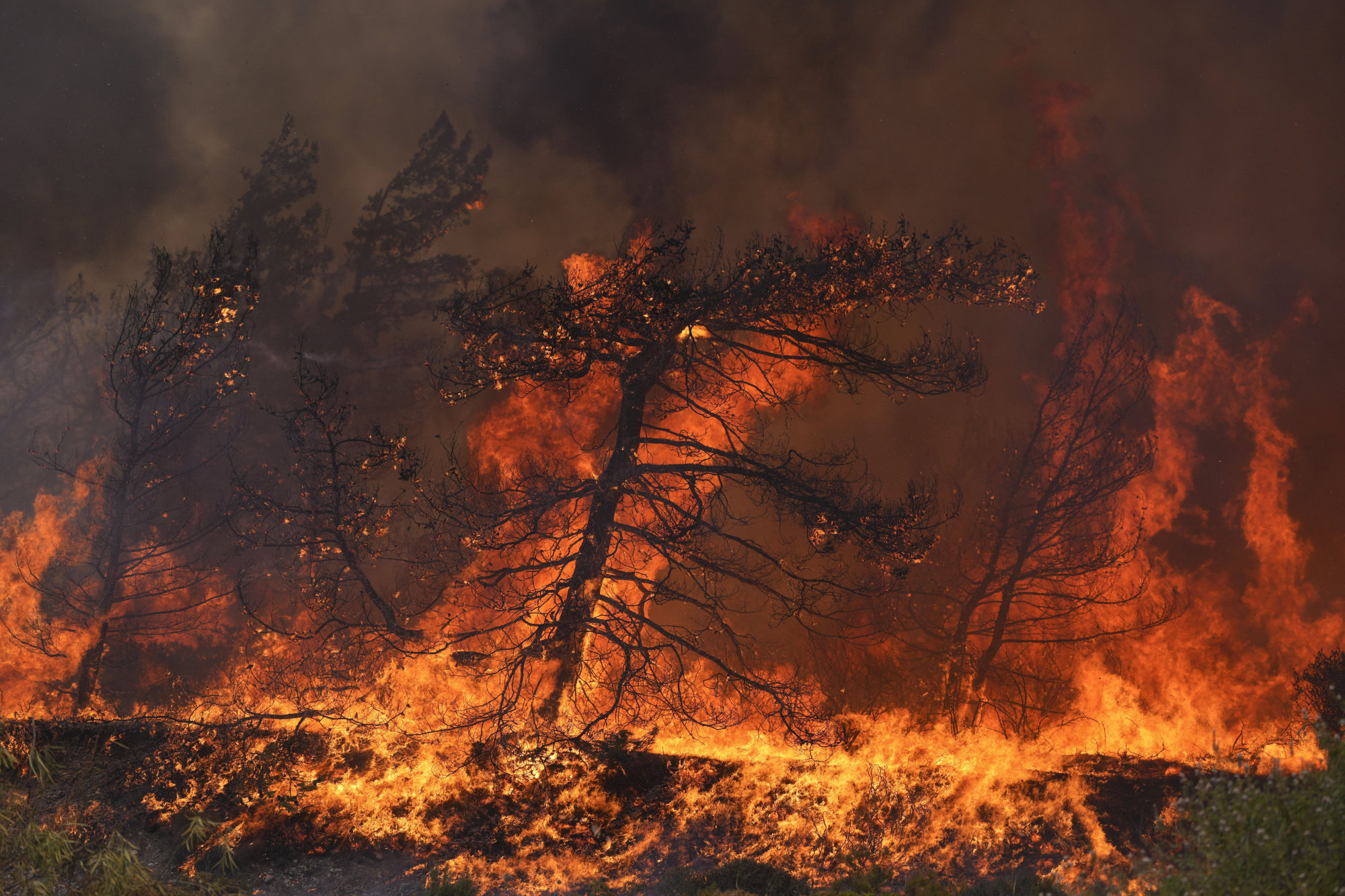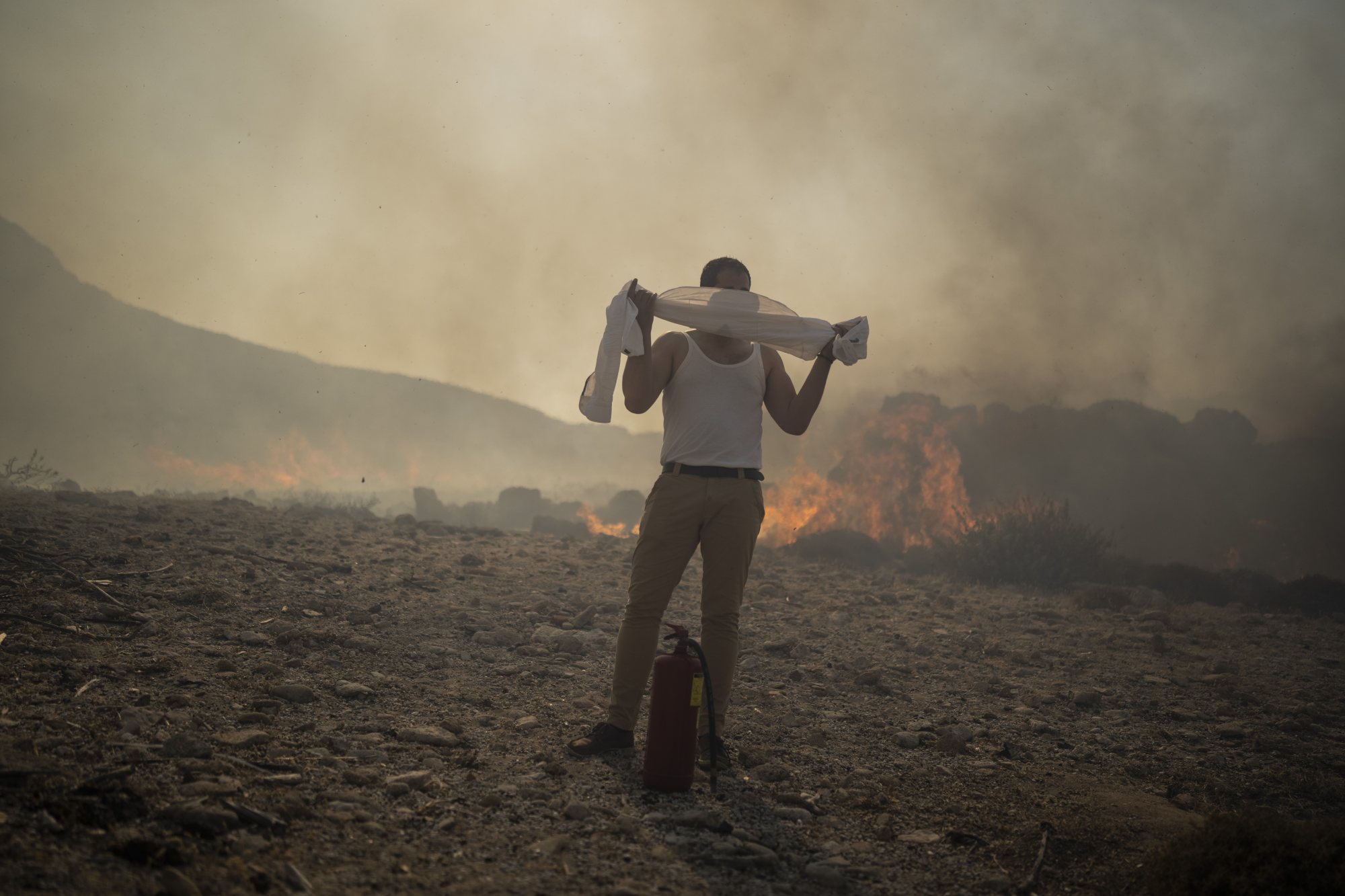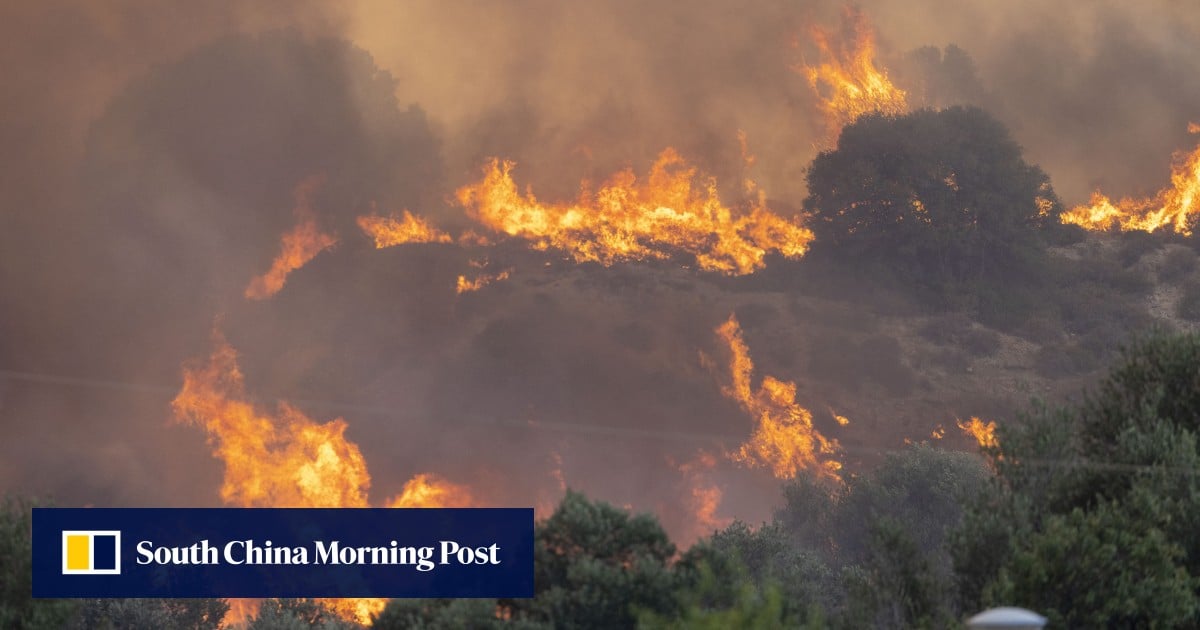Greece on Sunday raised its wildfire alert level to “high risk” after dozens of blazes broke out, the civil protection ministry said.
On Saturday, “71 fires were declared in agricultural and forestry regions across the country in 12 hours, between 0300 GMT and 1500 GMT”, said the ministry, which also looks after the climate crisis.
Most of the fires were controlled, with the exception of one in Lasithi on the island of Crete that was still burning on Sunday, the fire department said.
Three people were lightly injured in the blaze, the fire department said. The country is battling the fallout after five dry weeks.
Strong winds of up to 37mph (60kph) are expected to blow until Tuesday in parts of Greece, “making the situation extremely dangerous for the outbreak of fires”, the ministry said.

In those areas, which include the Athens region, the centre, the Cyclades islands and Crete, “all civil protection services will be placed on level four (high risk of fires)”, the ministry said.
Greece recorded a record average temperature of 11.8 degrees Celsius (53.2 Fahrenheit) over the winter, said the Athens Observatory, which has warned of a worrying level of drought.
Temperatures have been unseasonably high since the start of April, reaching 31 degrees Celsius on Tuesday at Chania on Crete.
Greece, like many other parts of the Mediterranean, experienced a prolonged heatwave in 2023 in which 20 people died and close to 175,000 hectares (430,000 acres) of land were scorched in fires that ravaged the country.

In the south of the popular holiday island of Rhodes, hotels and holiday resorts had to be evacuated and around 20,000 holidaymakers and locals had to be brought to safety.
Huge swathes of land also burned in the Dadia National Park in the northeast of the country.
Experts assume that the forest fire season, which usually begins around May 1, is likely to arrive earlier every year due to climate change.
Additional reporting by dpa

